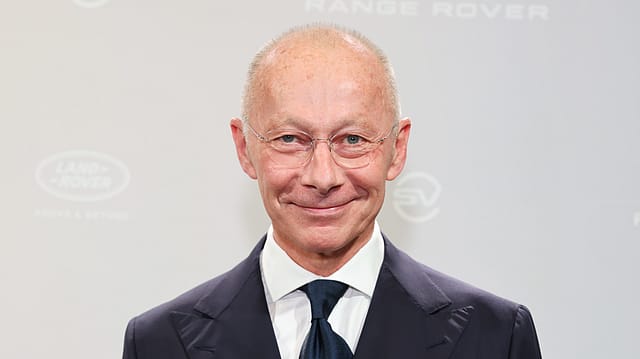Jaguar Land Rover CEO Thierry Bolloré resigns
ADVERTISEMENT

Jaguar Land Rover chief executive officer Thierry Bolloré on Wednesday announced his resignation from the company for personal reasons. Bolloré, who is set to leave JLR on December 31, also resigned as non-executive non-independent director of Tata Motors.
Adrian Mardell will take over as the company's interim CEO from today, Tata Motors says in a stock exchange filing. Mardell has been part of Jaguar Land Rover for 32 years and a member of the executive board for three years.
The resignation comes days after JLR parent Tata Motors narrowed its consolidated net loss to ₹944.6 crore in the July-September quarter as against ₹4,441.5 crore in the same period last year. The company's overall revenue in the quarter surged 29.7% to ₹79,600 crore compared with ₹61,378.82 crore in the year-ago period.
Revenue from its British arm Jaguar Land Rover grew 36% year-on-year to £5.3 billion in Q2 FY23, reflecting strong model mix and pricing, with wholesale volumes (excluding China JV) growing at 17.6% YoY to 75,307.
The wholesale increase was lower than planned, primarily due to a lower-than-expected supply of specialised chips from one supplier, which could not be readily re-sourced in the quarter, according to Tata Motors. "The production ramp-up of New Range Rover and New Range Rover Sport improved with 13,537 units wholesaled in the quarter, up from 5,790 in Q1 and helped mitigate this," the company had said.
In the earnings release, Bolloré had said that JLR delivered a stronger financial performance in the second quarter as production of "new Range Rover and Range Rover Sport" ramped up, thus improving revenue, margins and cash flow, despite continuing semiconductor constraints.
Meanwhile, Tata's commercial vehicle business registered a 15% year-on-year growth in sales during the second quarter. For India business, domestic wholesales were at 93,651 vehicles (19% up). However, exports were at 6,771 vehicles, lower by 22%, affected by the financial crisis in few export markets.
Tata Motors' passenger vehicle business continued its strong momentum with wholesales at 142,755 vehicles (up 69% YoY), amid strong festive demand. The carmaker had announced a price hike across its passenger vehicles from November 7, 2022.
The company has been absorbing a significant portion of the increased costs but the steep rise in overall input costs has compelled it to pass on some proportion through this minimal price hike, Tata Motors had said, while announcing an average price hike of 0.9%, depending on the variant and model.
India's largest electric vehicle maker also rolled out its 50,000th EV in the country earlier this month. Favorable policy environment, positive word of mouth from existing customers, practical product options, better ride and handling and attractive cost of ownership helped the company achieve this feat ahead of its target.
The carmaker has also signed a memorandum of understanding (MoU) with U.S.-based Cummins to work on the design and development of low and zero-emission propulsion technology solutions for commercial vehicles in India—including hydrogen-powered internal combustion engines, fuel cells, and battery electric vehicle systems.